Adult acne: What causes it and how to prevent it
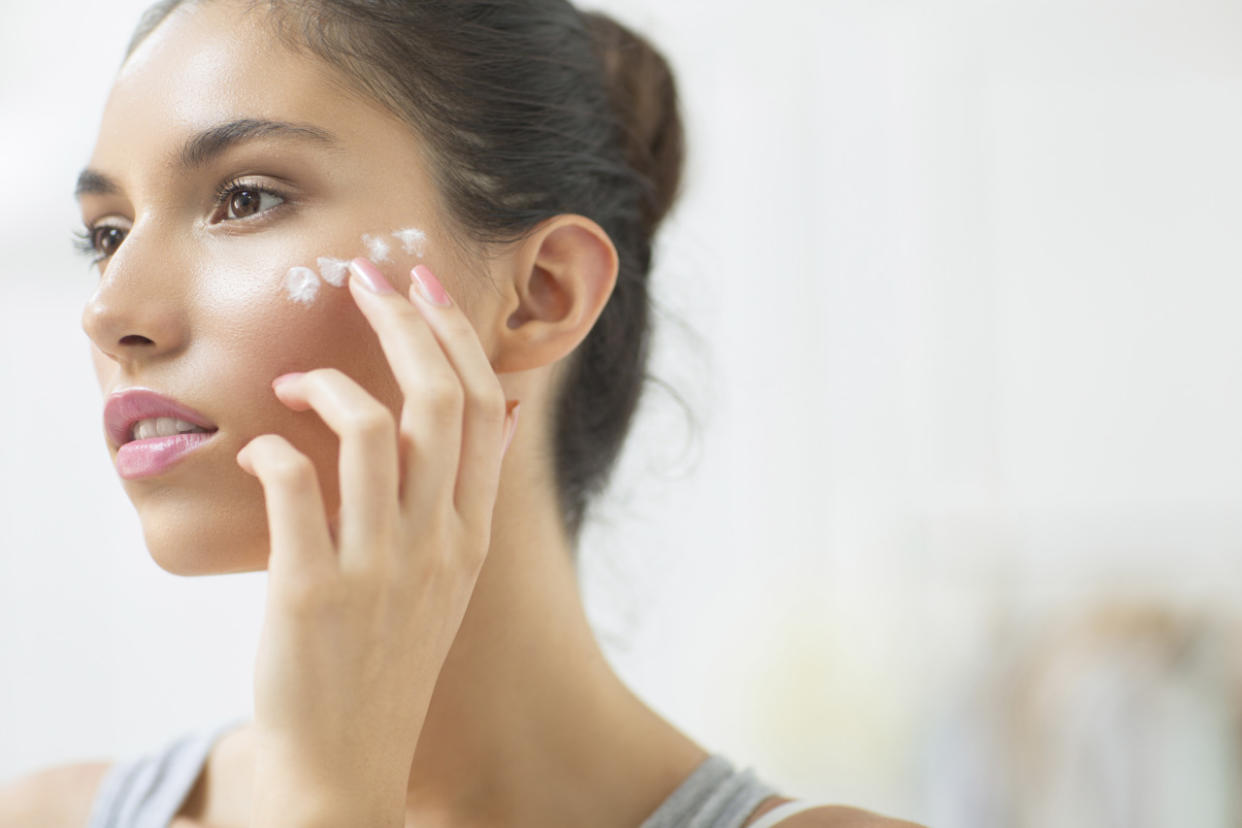
[Photo: Getty]
Bad skin sucks. And it’s only getting worse. Rather depressingly, rates of adult acne have gone up 200 per cent in the last year alone. And not just young adults. According to recent research, more than a third of people seeking treatment for acne are over the age of 35.
Some of the most beautiful women in the world, including Victoria Beckham, Cameron Diaz and Katy Perry, have talked about their struggle with spots. It’s not just us ‘normal’ people that are plagued with break outs.
With around 50 per cent of adults suffering from acne at some point, and with 80 per cent of those being women, it’s important to understand what’s really going on when it comes to problem skin.
What causes adult acne?
Acne is directly caused when follicles become blocked due to an over production of sebum - that’s the oil content in the skin on your face. The excess sebum mixes with dead skin cells and debris, clogging up the follicles and, in turn, bacteria that naturally live on the skin contaminate these clogged follicles, and out come papules, pustules, nodules or cysts – whatever name you like best.
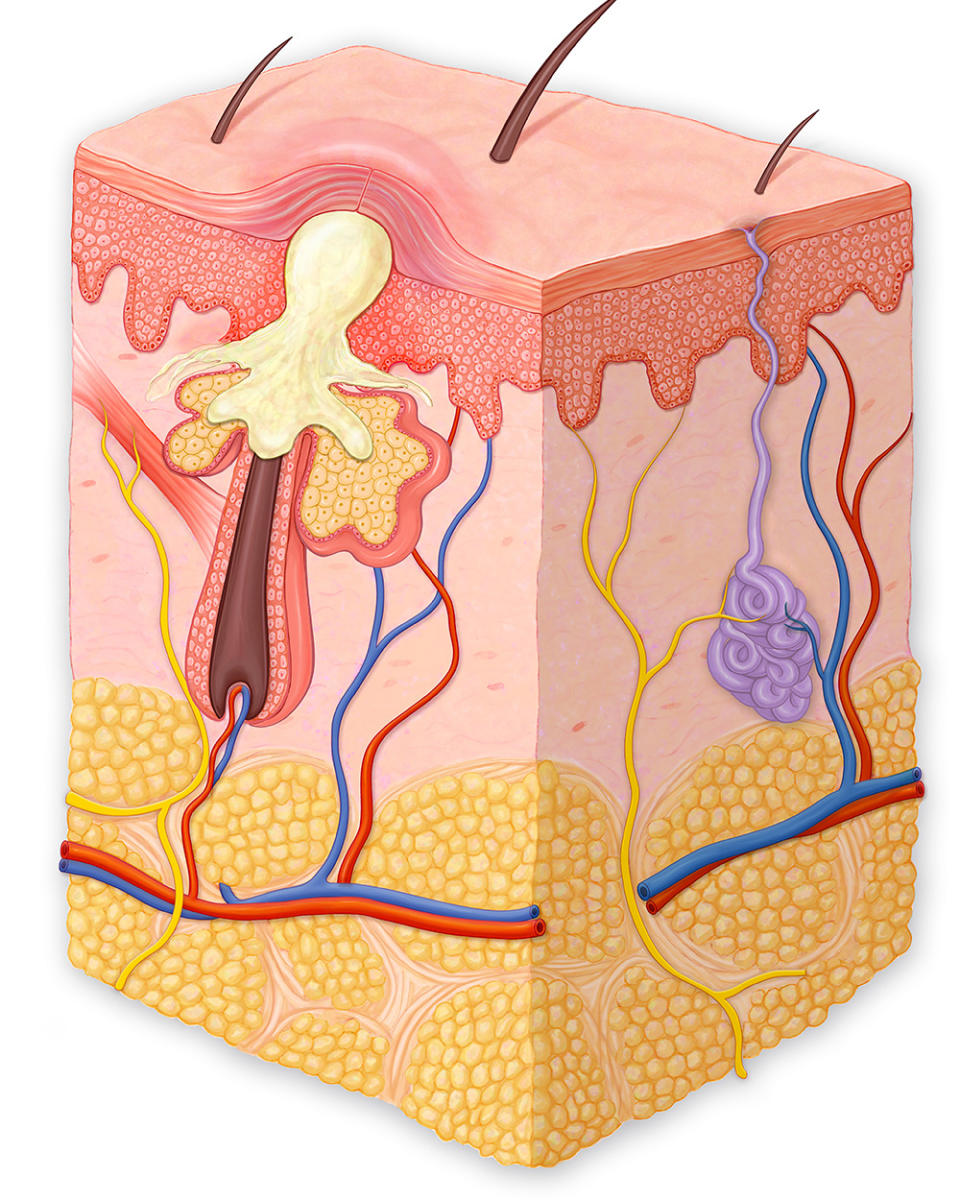
[Photo: Rex]
It’s the hormone fluctuations that cause this oil production to accelerate – whether the imbalance is brought on by lifestyle, PMS, pregnancy, or even polycystic ovary syndrome (PCOS), the result is the same. And it’s not pretty.
But before you jump to the latter conclusions, first take into consideration the following: stress, pollution and diet which can all lead to hormonal imbalance, the main cause of acne in adults.
You are what you eat
While it’s not true that ‘Chocolate gives you spots’, it’s true that a diet high in sugar could be a contributing factor.
We spoke to nutritionist Cassandra Barns who explained that sugar can disrupt your hormonal balance and lead to breakouts.
“Firstly, sugary and processed foods contain little in the way of vitamins and minerals that nourish and protect the skin. Secondly, sugar and refined carbohydrates (which are quickly absorbed, just like sugar) cause a surge of the hormone insulin, which can then increase your levels of testosterone, which in turn can contribute to breakouts and acne.”
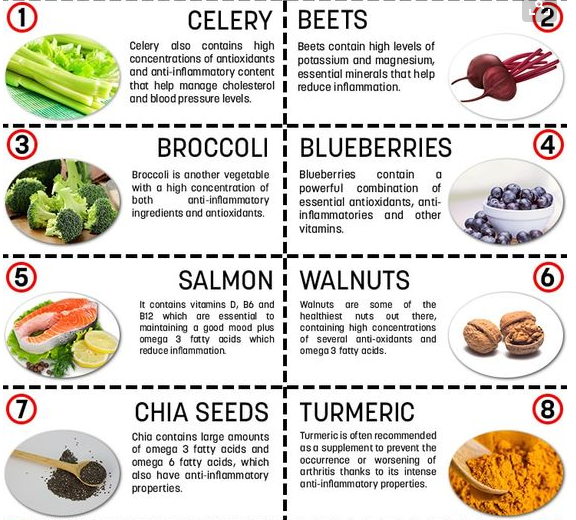
[Photo: Pinterest]
Instead, load up on anything high in vitamin C, vital for the formation of collagen, which gives our skin structure and elasticity. Vitamin C is also an antioxidant, protecting our cells from damage; and berries also contain many other plant nutrients that may work as antioxidants in the body.
Stress = Cortisol = Oil production
Like poor diet, a stressful lifestyle can again have a negative impact on keeping those hormones in check.
“One reason for this is that high levels of cortisol (the stress hormone) in the blood can contribute to other hormone imbalances – for example in oestrogen and testosterone – which can then lead to pimples and outbreaks.” explains Barns.
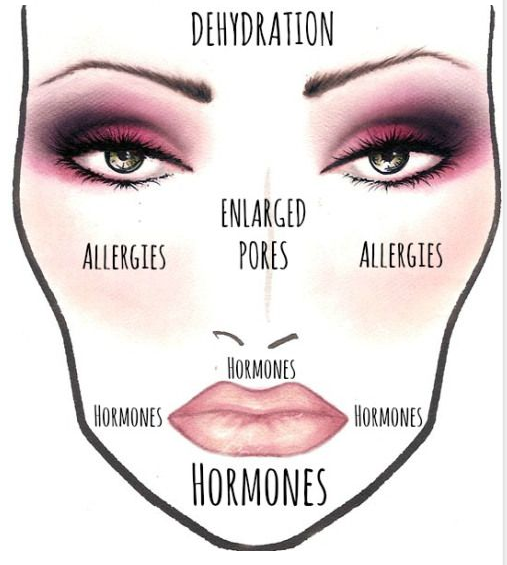
[Photo: Pinterest]
‘Apart from triggering a number of other changes in your body, cortisol boosts sebum production, which can lead to blocked up hair follicles and acne. That’s why after an exam or a job interview we often end up with a few new spots the next day’, adds Dr Marilyn Glenville, the UK’s leading nutritionist (www.marilynglenville.com) and author of Natural Alternatives to Sugar.
Routine is key
However, if you’ve taken all this into consideration and you are still suffering then topical treatments are available.
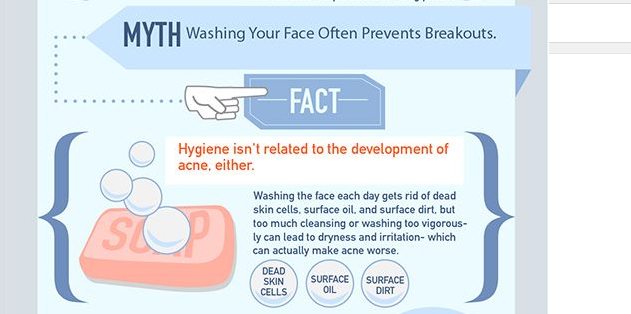
[Photo: Pinterest]
Adult skin is more prone to irritation than teenage skin so put down the Clearasil and take a gentler, more moisturising approach. Be sure to select oil free and non-comedogenic products.
You also might want to consider adding a gentle retinol or prescription-strength retinoid to your evening skincare routine, which can help increase the shedding of dead skin cells that block pores.
Saying that, sometimes there’s no other option other than to cover up - be sure to hone your technique to avoid attracting even more attention to the blemish.
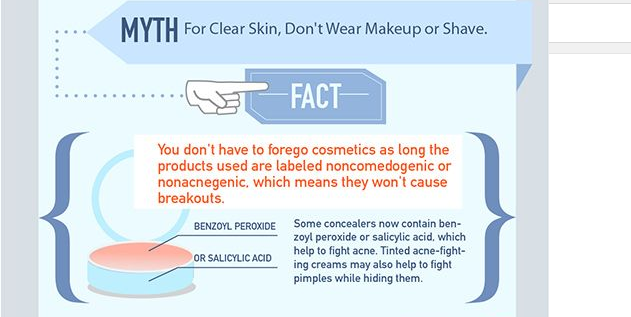
[Photo: Pinterest]
The main thing is to never put a too-light concealer or shimmery powder onto a raised bump—basically, you may as well shine a spotlight on it. Match the concealer to your skin, then use a brush to lightly tap on a slightly darker matte eye shadow shade to give the illusion of a shrunken bump.
Contrary to what you might think, powder-based mineral foundations with ingredients like silica, titanium dioxide, and zinc oxide can actually work to absorb oil and prevent pimples from forming.
Still suffering? It’s time to book in and see the GP who can offer topical treatments, oral antibiotics, oral contraceptive pills, and Isotretinoin capsules depending on the severity of the acne.
The main thing is you don’t just have to put up with it.


